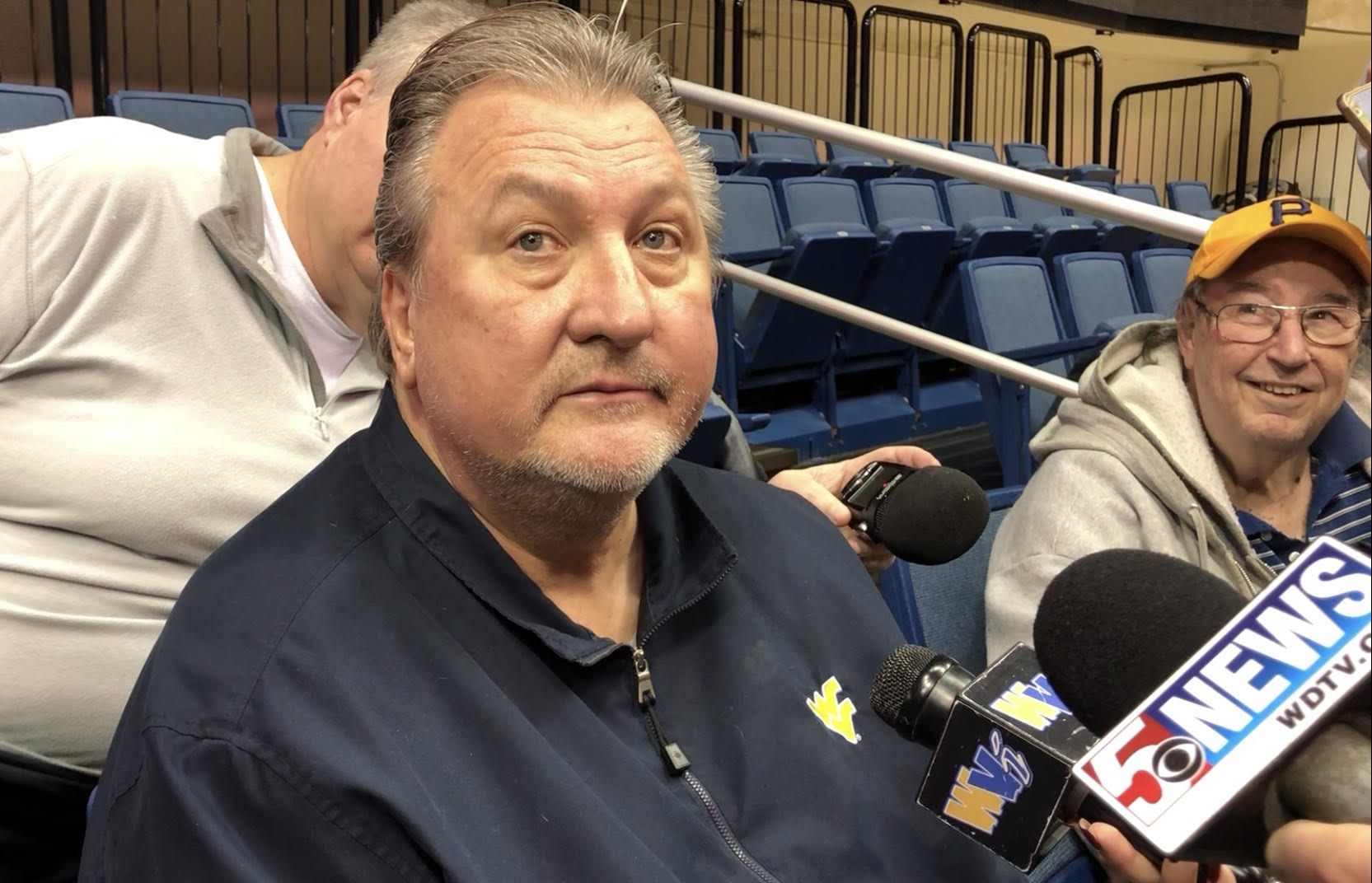WVU’s Bob Huggins thinks rule change aims to ‘eliminate post play all together’
December 11, 2019 by Tom Bragg
(photo by Tom Bragg)
The NCAA moved the 3-point line for men’s college basketball back to the international standard distance of 22 feet, 1 and 3/4 inches this season, and through eight games it is safe to say veteran West Virginia coach Bob Huggins is not exactly a fan of the change as his Mountaineers have struggled to shoot from distance.
However, when asked if he thought the change was part of WVU’s problem, Huggins said he didn’t think so.
“No,” Huggins said. “I think our guys are trying to prove they couldn’t make NBA 3s.”
West Virginia currently sits at fifth in the 10-team Big 12 with a 32.1 percent 3-point average (43 of 134). Players like Taz Sherman and Sean McNeil were brought in largely for their shooting ability but have been streaky at best so far while veterans such as senior Chase Harler and sophomore Jordan McCabe have had trouble sinking long-range shots.
Huggins downplayed the new distance making much of a difference to most players, but did acknowledge how much the change has hurt anyone’s ability to attempt 3-pointers from either corner. With the line extended, and already tight space is now even tighter and players chances are if you’ve watched enough college basketball this season you’ve seen someone spot up in the corner and get called out of bounds upon receiving the ball.
“It makes a difference in the corner, but that’s it,” Huggins said. “How many times can you watch a guy step out of bounds? It’s happening all the time and we knew it was going to happen. We’re sitting in that room and that’s what the coaches in the room are talking about. We’re going to have to spend time making sure, and kids today, for whatever reason, they step back before they go forward.”
Of course, Huggins was one of the coaches on the committee which debated the most recent batch of NCAA rule changes. He said the idea — one he was not exactly on board with — was the extend the 3-point line and as a result the area inside the line would be more open for free-flowing play.
“That was the theory, but you guard guys who can shoot, and the guys who can’t shoot you really don’t guard,” Huggins said. “It’s not like [WVU forward] Derek [Culver] doesn’t have people sitting in his lap all the time. I think that’s a total fallacy. I think we’re trying to do — seemingly, and this is just my opinion — but we seemingly are trying to eliminate post play all together. They’re trying to eliminate the physicality in the game.”

